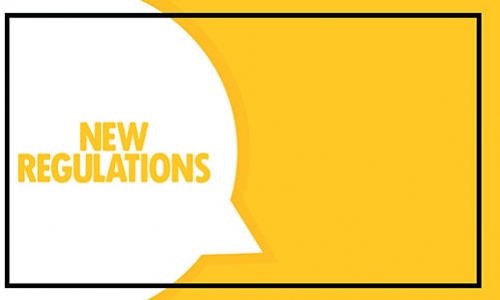New Texas Law on Sexual Harassment Claims: What It Means for Employers
By Kevin M. Mosher • Jul 19, 2021
Earlier this summer, Texas lawmakers passed new legislation relating to sexual harassment claims under Chapter 21 of the Texas Labor Code. With this change, more employers may be liable for sexual harassment claims brought by employees, and the definition of sexual harassment has expanded to increase the scope of what is considered sexual harassment and what is considered an unlawful employment practice. Another major change is an increase in the statute of limitations for claims under this law.
 Which Employers Are Covered by the Law Now?
Which Employers Are Covered by the Law Now?
Basically, all of them! Prior to this, only private employers “engaged in an industry affecting commerce” with 15 or more employees working for at least 20 or more weeks in the current or preceding year could be liable under the law for sexual harassment claims brought by employees. Now, the law applies to any person or business that employs one or more employees. Additionally, it applies to those who “act directly in the interests of an employer in relation to an employee.” While this may seem vague, we expect the courts will clarify this term when inevitable litigation ensues, or there may be additional administrative guidance.
Definition of Sexual Harassment
The new law also expands the definition of sexual harassment. Now, sexual harassment is defined by the law as “an unwelcome sexual advance, a request for sexual favor, or any other verbal or physical conduct of a sexual nature if:
- submission to the advance, request, or conduct is made a term or condition of an individual’s employment, either explicitly or implicitly;
- submission to or rejection of the advance, request, or conduct by an individual is used as the basis for a decision affecting the individual’s employment;
- the advance, request, or conduct has the purpose or effect of unreasonably interfering with an individual’s work performance; or
- the advance, request, or conduct has the purpose or effect of creating an intimidating, hostile, or offensive working environment.”
This is the common definition in many internal policies, but now it is explicitly prohibited by law.
Definition of Unlawful Employment Practice
Under the new law, employers will have committed an “unlawful employment practice” if the employer or an employee’s supervisor(s) knew or should have known that an employee was sexually harassed and failed to take immediate and appropriate corrective action. To ensure compliance with this law, employers should develop clear reporting mechanisms and investigation procedures when it comes to sexual harassment complaints.
Longer Statute of Limitations
A major change from the previous statute, employees will now have 300 days (instead of the prior 180 days) from the date of the alleged sexual harassment to bring a claim against their employer under the new legislation.
What action should employers take?
These changes become effective September 1, 2021, and will not apply retroactively. This gives employers some time to review their policies and make sure they are in the best position to comply with the law and ensure a workplace free from sexual harassment. Employers who need help training and implementing policies to comply with these amendments should contact the Thompson Coe Labor and Employment group for advice.
HR Legal Resource
Join myHRgenius and receive direct counsel from some of the most trusted and respected lawyers within Labor & Employment at Thompson Coe. Our Thompson Coe team monitors developments in HR laws and how they impact employers and employees throughout the country. By subscribing to the myHRgenius legal service program, you will have access to HR legal counsel, webinars, primers, summaries, and podcasts on all things supporting HR. Visit myhrgenius.co or call 651-389-5000.







